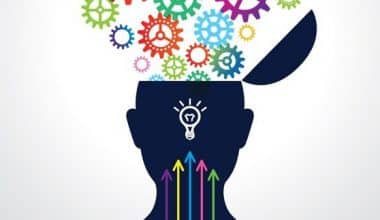Understanding empathy and its practical application is critical for making meaningful relationships and developing understanding in all parts of life. In this blog article, we will look at the various aspects of empathy and present inspiring examples of the power of empathy in action. We will look at how to show empathy examples from ordinary life to professional situations, distinguish between empathy vs sympathy, analyze the repercussions of a lack of empathy, and investigate the fascinating domain of cognitive empathy. Let’s go on an empathy journey and see how it can change our interactions and relationships.
What is Empathy?
Empathy is the intrinsic ability to comprehend and share the emotions of another. It goes beyond sympathy because it entails not just perceiving another person’s emotions but also experiencing them ourselves. Empathy allows us to connect with people and promote compassion, connection, and true understanding.
Empathy can manifest itself in a variety of ways, including emotional empathy, cognitive empathy, and compassionate empathy. Emotional empathy is the ability to share and mirror the emotions of others, whereas cognitive empathy is the ability to grasp the views and experiences of others. Compassionate empathy combines emotional and cognitive empathy, resulting in a desire to alleviate pain and provide assistance.
Empathy is essential not only in personal relationships but also in professional contexts. Empathy is essential in professions such as healthcare, counseling, customer service, and leadership for developing trust, resolving problems, and improving overall communication and teamwork.
We can build a more compassionate and inclusive society by embracing empathy. Empathy enables us to see beyond our own experiences and biases, allowing empathy-driven behaviors that promote compassion, generosity, and good change to take place.
Now that we have a better understanding of empathy, let us look at some striking examples of its transforming impact in different circumstances.
Show Empathy Examples
Empathy can make a major difference in everyday relationships. Consider a coworker who appears to be stressed. Rather than ignoring their concerns, an empathic approach would be to offer assistance, lend a listening ear, and ask how you can help. You create a secure space for them to express themselves and relieve some of their responsibilities by acknowledging their emotions and providing a supportive presence.
example of Empathy in customer service can transform a negative encounter into a pleasant one. When a consumer expresses dissatisfaction or frustration, an empathetic representative will actively listen, acknowledge their feelings, and attempt to find a solution that fulfills their needs. The representative not only tackles the immediate issue but also creates a lasting impression of care and understanding, creating customer loyalty and satisfaction.
Empathy allows us to connect on a deeper level in a personal relationship. For example, if a friend expresses difficulty managing work and personal life, an empathic reaction would include recognizing their feelings, giving a safe environment for them to express themselves, and offering compassion and encouragement. Empathy for our loved ones strengthens our ties, fosters trust, and fosters a climate conducive to open and honest conversation.
In healthcare settings, for example, empathy is equally vital. Empathic doctors will not only diagnose and treat a patient’s physical disease, but will also take the time to understand their emotional state, address their concerns, and give holistic care. Healthcare professionals can lessen the worry and fear that typically accompany medical appointments by displaying empathy, resulting in a more comforting and supportive environment for patients.
Empathy can also promote societal transformation. When confronted with societal concerns like prejudice, an empathetic approach entails actively listening to minority voices, attempting to understand their perspectives, and working to create a more inclusive and fair society. We can support individuals who have been oppressed or marginalized by empathizing with them and fighting for justice, equality, and human rights.
In these examples, empathy extends beyond words or actions. It necessitates genuine comprehension, active listening, and a willingness to put oneself in the shoes of another. By demonstrating empathy in our encounters, we create a chain reaction of compassion and understanding that has the potential to transform relationships, companies, and communities. Allow empathy to guide your actions, and watch as it creates positive change and strengthens ties in your life.
Sympathy vs Empathy Examples
While the terms empathy and sympathy are frequently used interchangeably, they have different meanings. Sympathy is when you feel compassion or pity for someone else’s position, whereas empathy is when you fully understand and share their emotions.
Consider a friend who has recently lost a loved one to demonstrate the distinction. Offering condolences and showing sadness for their loss would be an empathetic reaction. An empathic response, on the other hand, would entail genuinely comprehending the intensity of their sadness, offering support, and being present for them during their mourning process.
Because it focuses on viewing another person’s feelings from an outside perspective, sympathy can sometimes generate a sense of remoteness. Empathy, on the other hand, allows us to put ourselves in their shoes, connect on an emotional level, and gain a better understanding of their experiences.
While sympathy is well-intentioned, empathy has a greater impact on connecting people, encouraging understanding, and fostering constructive change. It creates a sense of shared humanity and compassion by bridging the gap between ourselves and others.
We may improve our relationships, support people more effectively, and build a more sympathetic and inclusive society if we strive to cultivate empathy rather than sympathy.
Lack of Empathy Examples
In interpersonal relationships, a lack of empathy can lead to strained ties and emotional detachment. For example consider the following scenario: a friend discloses their struggles and weaknesses, only to be met with dismissive answers or a lack of comprehension. This lack of empathy can make the individual feel alienated, unheard, and hesitant to open up in the future, weakening trust and closeness in the relationship.
A lack of empathy in customer service for example can hurt the customer experience. When a consumer contacts a company with a complaint or issue, encountering a person who is indifferent, impatient, or unable to grasp their point of view just adds to their dissatisfaction. This can lead to consumer dissatisfaction, negative reviews, and, in extreme situations, commercial loss for the company.
The lack of empathy in the workplace can contribute to a poisonous and unproductive environment. When supervisors or coworkers do not treat employees with empathy, it can lead to feelings of disengagement, low morale, and higher stress levels. This lack of support has a negative influence on teamwork, communication, and overall job satisfaction, stifling productivity and organizational performance.
A lack of empathy in healthcare settings can add to patients’ pain. When medical practitioners fail to recognize and meet a patient’s emotional needs, they can feel dehumanized, worried, and unheard. This lack of empathy can stymie effective communication, hamper healing, and undermine trust between patients and healthcare professionals, jeopardizing care quality.
On a societal level, a lack of empathy reinforces social inequalities and injustice. When people or communities fail to empathize with those who have different experiences, histories, or identities, discrimination, prejudice, and systematic injustices can flourish. Empathy is necessary for recognizing and overcoming societal barriers, therefore progress toward a more inclusive and equal society becomes difficult without it.
These examples demonstrate the harmful repercussions of a lack of empathy. It emphasizes the significance of developing empathy in our personal and professional lives, as well as in broader societal situations.
Cognitive Empathy Examples
The ability to understand and consider the thoughts, beliefs, and views of others is referred to as cognitive empathy, also known as perspective-taking. It necessitates stepping outside of our worldview and immersing ourselves in someone else’s.
Conflict resolution is an example of cognitive empathy. When two parties are arguing, a mediator with excellent cognitive empathy skills can assist each side in seeing the issue from the other’s point of view, facilitating understanding.
Cognitive empathy is also essential in positions of leadership. A leader with cognitive empathy can make educated judgments by evaluating the influence of numerous stakeholders and comprehending the team’s unique perspectives.
Cognitive empathy is essential in cross-cultural encounters to promote understanding and reduce misconceptions. We can avoid assumptions and develop bridges of connection and respect by actively attempting to learn and appreciate cultural differences.
Cognitive empathy enables us to overcome our prejudices and engage in open-minded discussion. We can create a more inclusive and empathic society by actively listening, attempting to understand, and valuing other opinions.
The Ripple Effect of Empathy
Empathy’s influence extends far beyond individual interactions. Empathy has a ripple effect in our daily lives that can inspire and affect others.
Empathy in our interactions encourages others to reciprocate and fosters healthier ties. It establishes the tone for open communication, comprehension, and support.
Leading with empathy can motivate colleagues to follow suit in professional contexts. This can help to establish a healthy work environment, improve collaboration, and improve overall team performance.
Acts of empathy within communities can have a cascading effect. Individuals who witness and experience empathy are more likely to extend it to others, resulting in a communal wave of compassion and kindness.
Furthermore, the impact of empathy extends beyond the immediate group. We can inspire empathy on a larger scale by sharing stories, using social media platforms, performing acts of kindness, influencing societal norms, and fostering positive change.
How do you express empathy?
Here are some linguistic suggestions to attain this result:
- “I’m here for you.”
- “What do you need right now?”
- “I’m happy to listen any time.”
- “I’m sorry you are going through this.”
- “That sounds challenging.”
- “I can see how that would be difficult.”
What are the best empathy statements?
Customer Service Empathy Statement Examples:
- I’m deeply sorry to hear about your ordeal.
- I can imagine how aggravating that must have been.
- I would feel the same way if that happened to me.
- I’m sorry you’re having this issue.
- I’m aware of how difficult we’ve made things for you.
What are the 3 ways to describe empathy?
Empathy is a huge notion. Empathy has three components, according to renowned psychologists Daniel Goleman and Paul Ekman: cognitive, emotional, and compassionate.
How do you describe empathy in a person?
Empathy is defined by emotion researchers as the ability to sense other people’s feelings as well as the ability to imagine what someone else is thinking or feeling.
What are some wise words on empathy?
- “Empathy is seeing with the eyes of another, listening with the ears of another, and feeling with the heart of another.” Adler, Alfred
- “Empathy is the antidote to judgment.” – Unknown
- Walking in another person’s shoes might be insightful, but true empathy comes from feeling their footprints in your heart.” – Unknown
- “Empathy is about finding echoes of another person in yourself.” Mohsin Hamid’s
- “Empathy is the ability to see beyond your own experience, emotions, and perspectives to understand the experiences, emotions, and perspectives of others.” It is the key to bridging gaps and connecting people.” – Unknown
How do you show empathy without saying sorry?
Examples of phrases to express empathy without saying “sorry”:
- “I Appreciate Your Openness in Sharing This With Me.”
- “This Isn’t Easy, and I See You’re Doing Your Best.”
- “How Can I Best Support You Right Now?”
- “I can’t fully comprehend your situation, but I’d like to try.”
What is the most common form of empathy?
Emotional Empathy
This is more emotional than the normal understanding of the word “empathy.” Emotional empathy is the form of empathy that most of us experience as children.
Conclusion
Empathy is a strong force that has the potential to influence our relationships, communities, and society as a whole. Empathy is more than just a soft skill; it is a necessary component of human connection and understanding. We create an environment where individuals feel seen, heard, and appreciated by actively practicing empathy. It crosses gaps, dismantles obstacles, and promotes compassion and understanding. Let us practice empathy in our daily lives, whether in personal relationships, at work, or in our communities with the above examples.
- EMPATHY: Lack of empathy signs and how to develop it
- 21 Empathy Statements for Customer Service in 2024
- KEY CUSTOMER SERVICE SKILLS: Complete List, Resume, Training & Interview Questions
- CUSTOMER CONNECT: Meaning & What You Should Know
- Examples of empathy: 45+ Examples with empathy statements






